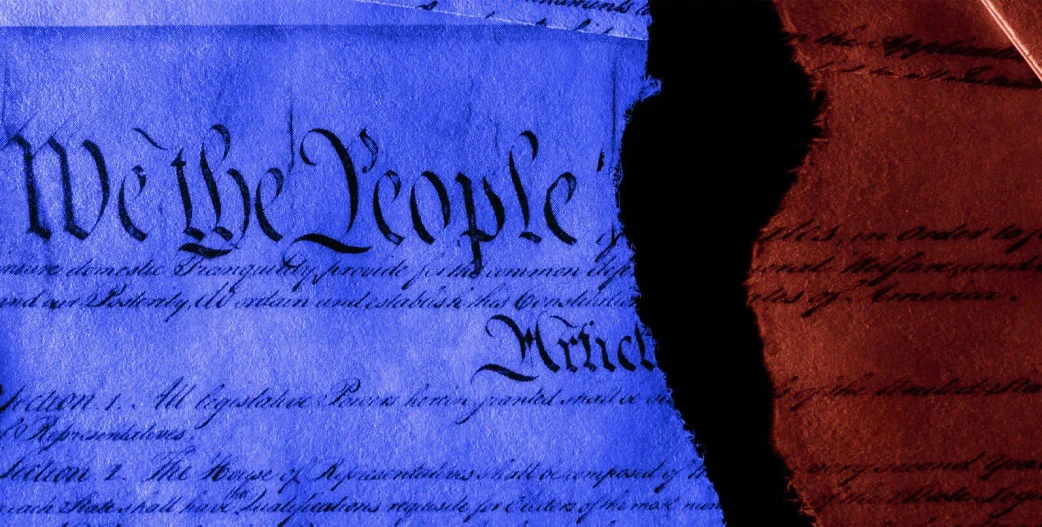Blog
Police Response Escalates Pro-Palestinian Protest

In the latter part of April, some UCLA students and civilian supporters joined the nationwide pro-Palestinian university campus protests spreading across the nation. Like other university student protestors, the UCLA protesters established “encampments” on university grounds—a grassy field between Royce Hall and Powell Library. It became known as the Palestine Solidarity Encampment.
The protestors called for a cease-fire in the Israeli war on Gaza and demanded that the university sever all financial ties with Israel. University officials tried to contain the protests through negotiation, but just like other universities across the U.S., they eventually called for police intervention to break up the demonstrations and dismantle on-grounds encampments. UCLA had officially joined that law enforcement intervention chorus by declaring the encampments illegal and calling for the police to intervene.
By the time law enforcement arrived on the scene of the protest on the night of April 31, large bands of aggressive, pro-Israel counter-protesters were at the scene. They had engaged the pro-Palestinian protestors in verbal attacks and physical assaults. Mel Buer, a reporter with Real News Network, was at the scene when what could only be characterized as a pro-Israel mob attacked the pro-Palestinian protesters at the encampment with sticks, metal rods, and fireworks.
News video footage and witnesses showed that law enforcement and university security personnel did nothing to intercede in the lawless attack on the pro-Palestinian protesters that lasted several hours.
In a May 2 report, Democracy Now noted that UCLA’s campus newspaper, the Daily Bruin, on May 1 charged that “UCLA is complicit in violence inflicted upon protesters.”
Local news media outlets reported that days before the pro-Israel mob attack on the pro-Palestinian protesters, university administrators had called upon UCLA Police Department Chief John Thomas to provide a “safety plan” for the “campus community” but the chief failed to do so.
KTLA 5 Television reported that three unidentified witnesses told the Los Angeles Times that:
“The chief was told to spare no expense to bring in other UC police officers, offer overtime and hire as many private security officers needed to keep the peace. But Thomas did not provide a plan to senior UCLA leadership – even after he was again asked to provide one after skirmishes broke out between Israel supporters and pro-Palestinian advocates during rallies.”
The evidence is mounting that high-ranking law enforcement officials connected with the UCLA protests wanted the violence to escalate so they could intervene with heavy-handed, military-type assaults without after-incident backlash. When the police did launch their raid on the UCLA encampment, they did so by attacking protesters with flash bangs and riot gear. By the end of the raid, the police had dismantled the encampment, injured some student protesters, and arrested 200 more.
Meanwhile, in Texas, students at the University of Texas at Austin also joined in the nationwide pro-Palestinian protest. The protests were peaceful. Nonetheless, the UT campus police Department issued a disperse order on April 28 that read:
“Your conduct is in violation of Penal Code Sections 42.01 Disorderly Conduct, 42.02 Riot, 42.03 Obstructing a Highway or other passageway, 30.05 Criminal Trespass.”
UT campus students continued their protests, saying they did not want their tuition money going to make bombs that would kill innocent Palestinians.
Greg Abbott did not wait for UT officials to develop a plan to deal with the pro-Palestinian protests that broke out on the UT campus on May 1. The gung-ho, law-and-order governor ordered state law enforcement officers to be prepared to attack the protesters and break up the protests by any means necessary.
According to the Texas Tribune, the very next day police used pepper spray and flash bang explosives to disperse the crowd of protesters. Innocent students got caught up in the police assault as they tried to help injured students hit by pepper spray or run over by others trying to escape the assault.
While Abbott was pleased with his intense show of force and while the state’s GOP praised UT President Jay Hartzell for supporting the police intervention, the president faced severe backlash for that decision and his lack of individual leadership in dealing with the protests.
In a letter that circulated after the protests, the Texas chapter of the American Association of University Professors said: “President Hartzell needlessly put students, staff, and faculty in danger … the president has shown himself to be unresponsive to urgent faculty, staff, and student concerns. He has violated our trust.”
The handling of the pro-Palestinian protests in Austin by Gov. Abbott and the UT president only served to intensify racism against Palestinians, Arabs, and Muslims in the community. Just two months before the student protests broke out, a white man, Brett James Baker, attacked and stabbed a 24-year-old Palestinian American man who had attended a pro-Palestinian protest. Community leaders and the local Muslim Council on American Islamic Relations (CAIR) called on prosecutors to charge Baker with a “hate crime.”
“The incident happened just after the victim and three other Muslim Americans attended a pro-Palestinian protest,…
“The group was driving when the suspect allegedly tried to “rip a flagpole with a Palestinian keffiyeh scarf reading ‘Free Palestine’ off of their car,” CAIR said in a news release. The suspect screamed the N-word and pulled one of the group from the vehicle and attacked him, CAIR said, citing the victims. The three others got out and fought the suspect, who then allegedly stabbed the victim with a knife, CAIR said.”
It is increasingly clear that attacks on pro-Palestinian protesters by counter-protesters, and even some police, are fueled by racial hatred. Not only is the rule of law disregarded, but respect for a democratic society suffers immensely due to these attacks.
Take the first step toward protecting your freedom by contacting us now
Testimonials
John T. Floyd is Board Certified in Criminal Law By the Texas Board of Legal Specialization
Request A Confidential Consultation
Fields marked with an * are required
"*" indicates required fields



















